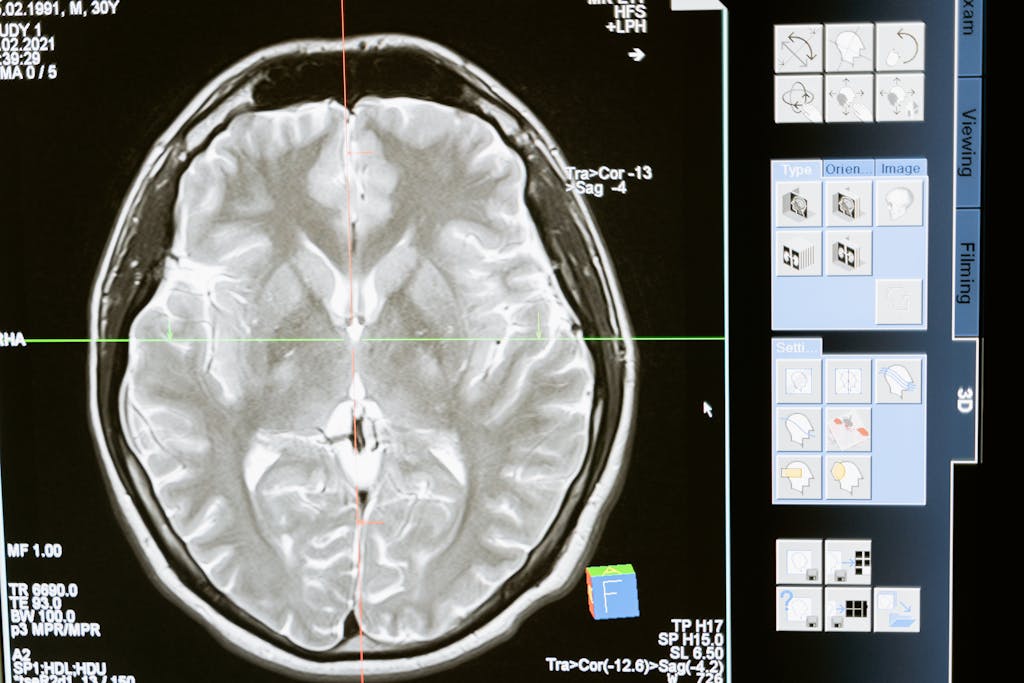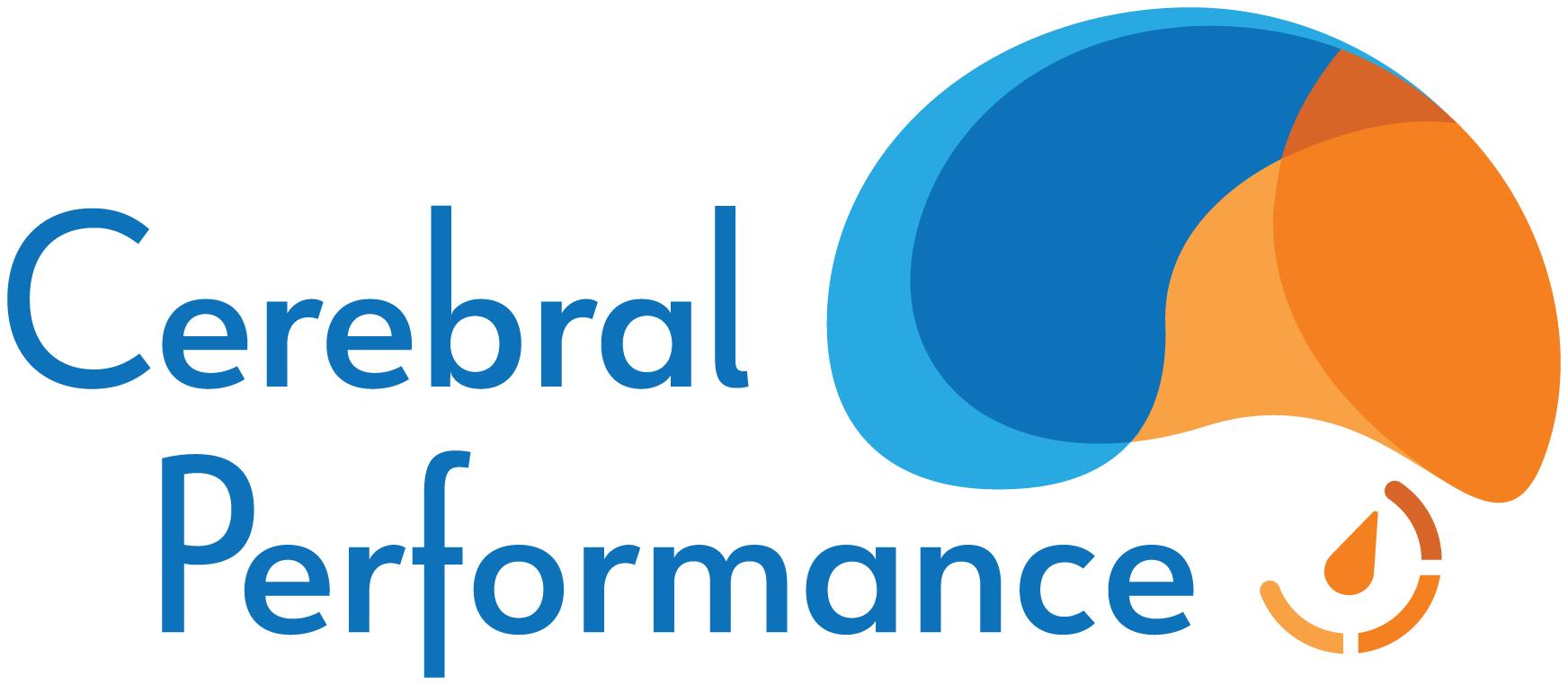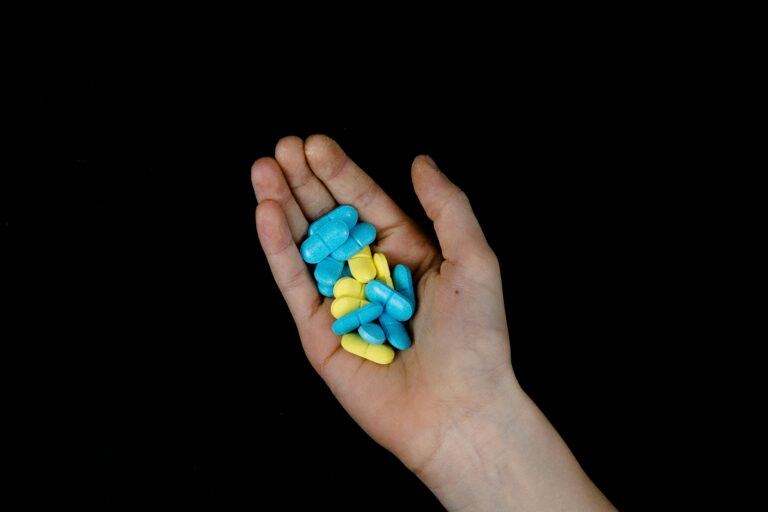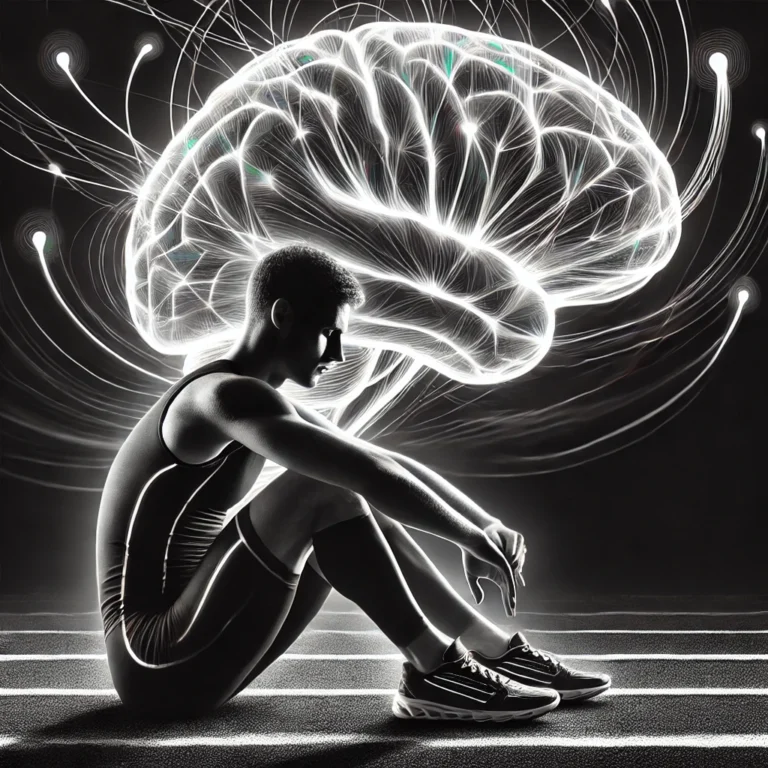Concussion Recovery: How to Protect Your Brain and Heal Effectively

There are two kinds of cyclists, those who have crashed and those who will. It’s not a matter of if, but when. As a career brain scientist, lifelong cyclist, and mental performance coach, I follow the research on concussion closely. While we still have much to learn, the evidence suggests that we can be doing more to protect our brains and help them recover from mild traumatic brain injury (mTBI). Here is what riders and coaches should know.
- Even if your fall does not involve direct contact between your helmet and the ground, you still need to consider the possibility of mTBI. When we hit the floor hard, transmitted impact forces cause the brain to slam against the inside of the skull. Regardless of whether head trauma is direct or indirect, this induces a range of cellular-level changes in brain function. Some are transient (e.g., inflammation and metabolic dysregulation), while others can be permanent (cell death).
- The consequences of these changes in brain function can be experienced as alterations in perception, thought, emotion, fatigue, and sometimes disruptions in balance and fine motor control. These mTBI symptoms can be subtle and easily missed in the post-crash stress. Nevertheless, they conspire to make a subsequent crash much more likely, and the price of a second impact to a vulnerable, injured brain can be devastating. When in doubt, stop riding and get evaluated by an expert as soon as possible. Early intervention leads to better outcomes.
- A large percentage of our gray matter consists of polyunsaturated fatty acids (PUFAs). The most abundant is docosahexaenoic acid (DHA), which is especially prevalent in cold water fish like salmon and mackerel. DHA modulates an array of functions that are crucial for healthy brain functioning and recovery from mTBI. These include neuroinflammation, transmission of neural impulses, and a host of factors involved with neuroplasticity—the ability of the brain to reorganize in response to training and the key to recovery.
- Most of our diets are low in DHA and increased intake appears to offer protection against many of the cellular changes noted above. Accumulating evidence suggests that higher levels of circulating DHA are associated with better cognition overall and improved outcomes from mTBI. There is more work to be done, but given the low risk I think that cyclists should give serious consideration to increasing their dietary intake of DHA-rich foods. Talk with an expert in nutrition about how to proceed.






